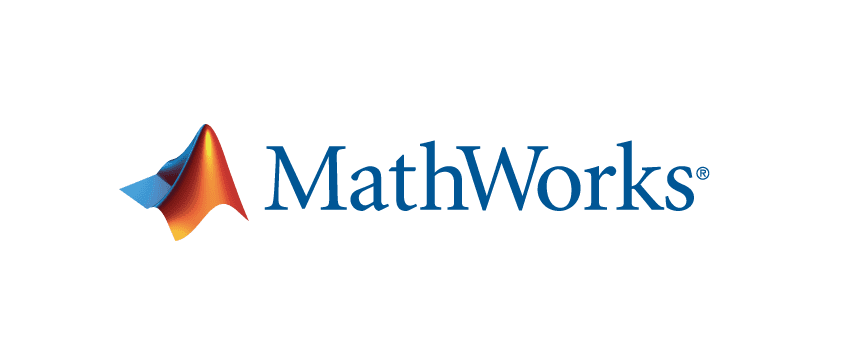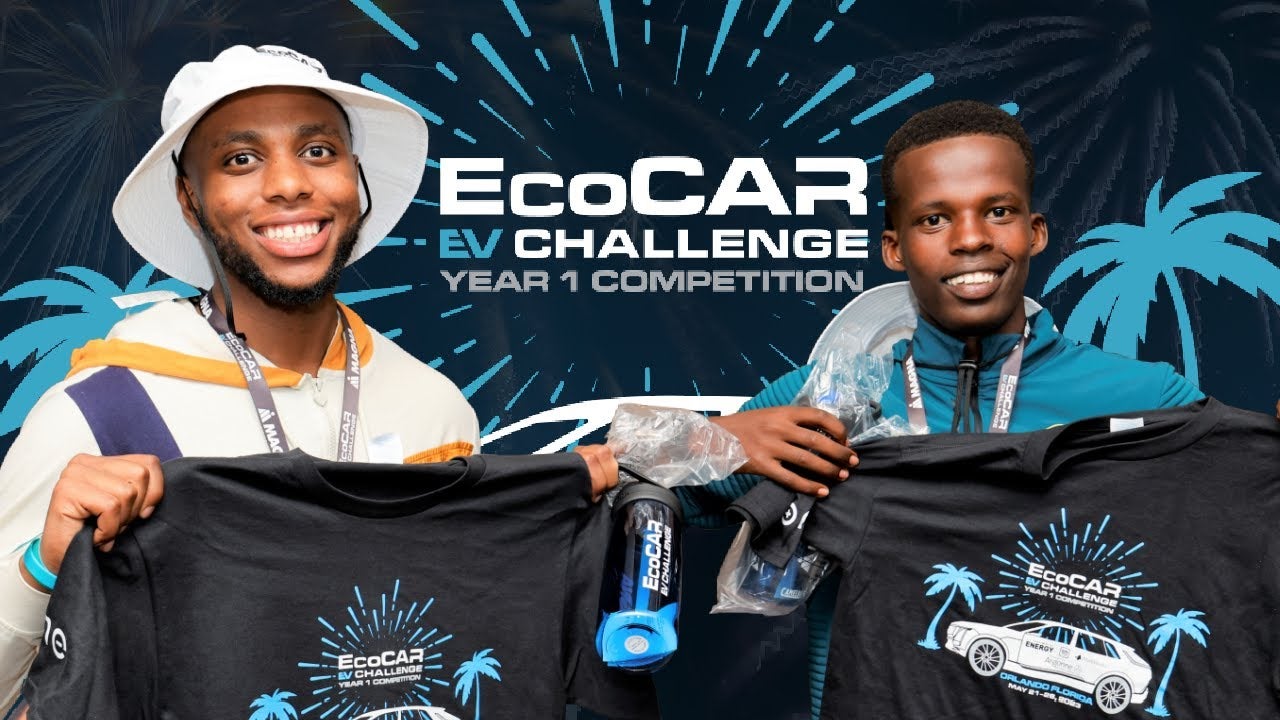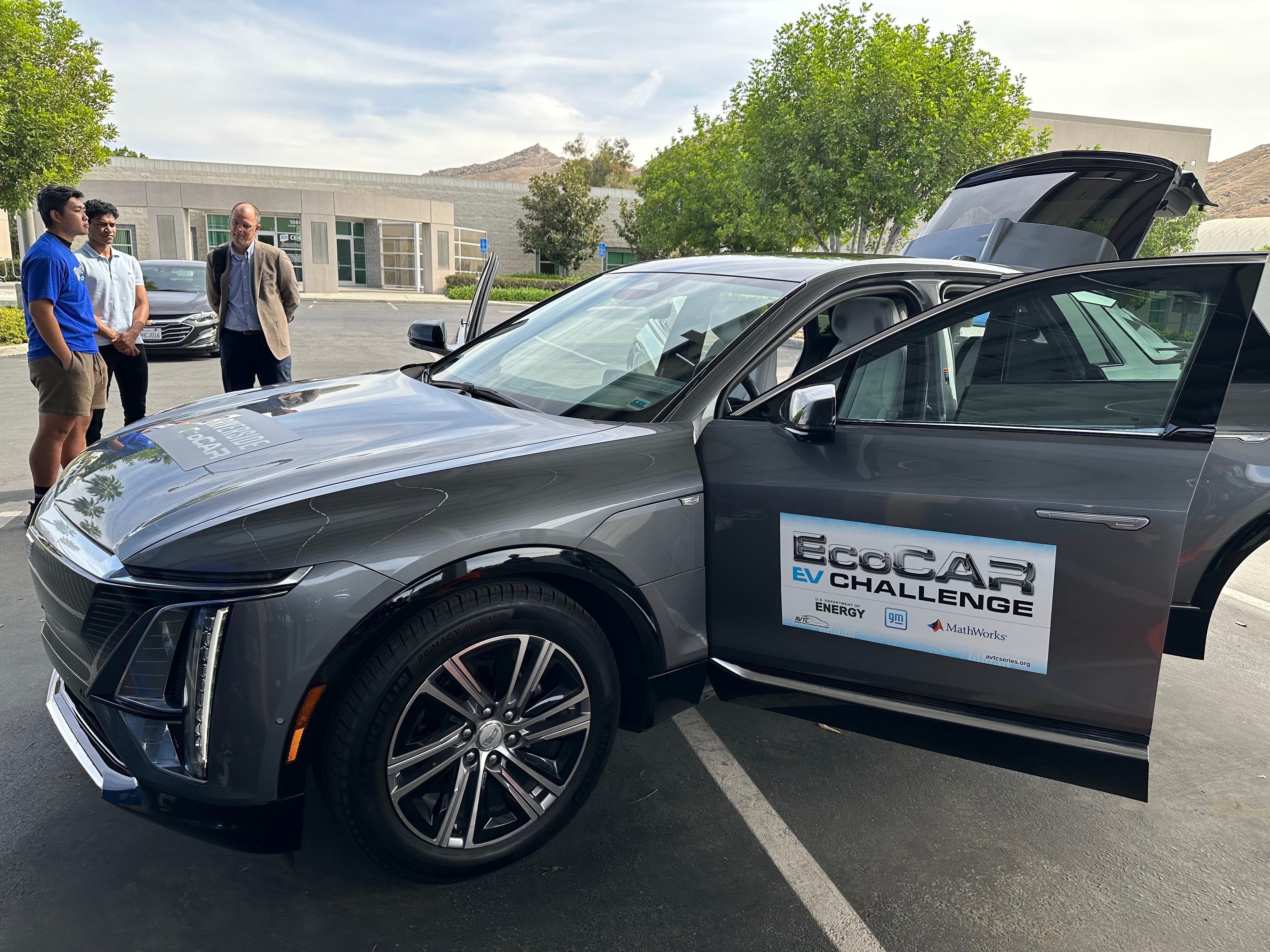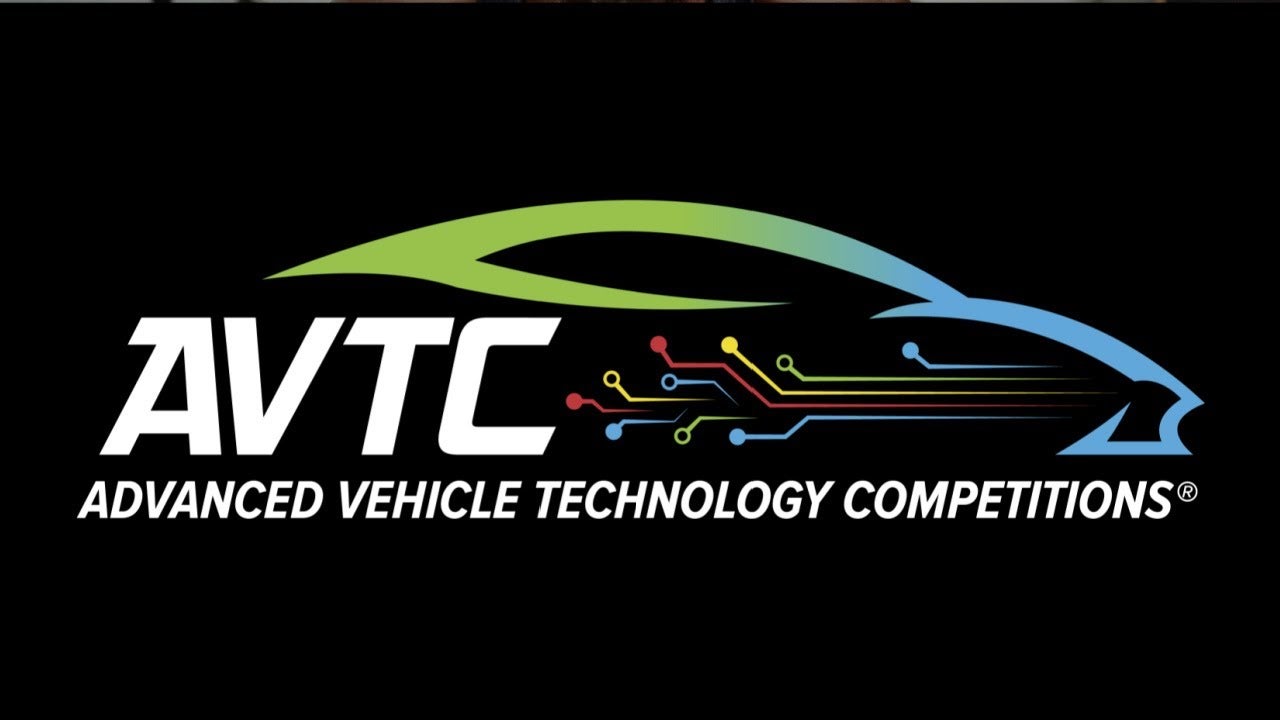About the EcoCAR EV Challenge
In April 2022, the U.S. Department of Energy (DOE), General Motors, and MathWorks announced the 15 North American universities participating in the EcoCAR EV Challenge (2022–2026), along with the selection of the 2023 Cadillac LYRIQ as the competition vehicle. Managed by Argonne National Laboratory, the EcoCAR EV Challenge serves as a proving ground for future automotive engineers.
Now in its third year and moving toward its fourth, the four-year competition challenges students to engineer a next-generation battery electric vehicle (BEV) that utilizes automation and vehicle-to-everything (V2X) connectivity, deploys connected and autonomous vehicle (CAV) features to implement energy-efficient and customer-pleasing innovations, and meets the decarbonization needs of the automotive industry. The program also encourages students to engage in outreach activities with their local communities and government to increase awareness in STEM, electrification, and clean energy. Students continue to gain hands-on experience and mentorship to strengthen their skills in engineering, management, and communications, and will build on those skills as the competition progresses.
UC Riverside is one of 15 elite North American universities in this leading automotive engineering competition, empowering our students to be leaders and innovators by providing industry-level experience in the most advanced automotive research and development. Our students gain unparalleled hands-on experience in their chosen fields, exposure to career opportunities with our sponsors and mentors, and integrate EcoCAR projects into their curriculum, with these benefits continuing to grow as we enter the final year of the challenge.
COMPETITION VEHICLE
General Motors provided each team with a 2023 Cadillac LYRIQ in the first year of the competition, and teams continue to demonstrate the potential of advanced propulsion systems, connected and automated vehicle (CAV) technologies, and other innovations to improve energy efficiency.
EcoCAR teams now utilize a combination of on-board sensors and bidirectional vehicle-to-everything (V2X) connectivity to implement energy-efficient and customer-pleasing automated control features. They also refine advanced powertrains along with charging and thermal systems to use grid electricity intelligently.
AVTCs
Established in 1988 by the U.S. Department of Energy and Argonne National Laboratory in partnership with North America’s automotive industry, Advanced Vehicle Technology Competitions (AVTCs) are a series of multi-year automotive engineering competitions and DOE’s flagship workforce development program for future automotive engineers and industry leaders.
AVTCs engage students from middle school through higher education, creating a pipeline that both encourages students to pursue careers in science, technology, engineering, and math (STEM) and has seeded more than 30,000 graduates into industry, helping to build the diverse workforce needed for the U.S. to be competitive in the global marketplace.
AVTC’S MISSION
AVTCs harness the knowledge and resources of government and industry with the brightest minds in academia to empower the next generation of engineers and business leaders to develop solutions to our nation’s toughest transportation challenges, while providing students with an unparalleled and immersive educational experience and real-world training ground that transforms the traditional classroom into a hub of automotive innovation. AVTCs seed the industry with a highly skilled and knowledgeable workforce that will shape future energy-efficient automotive products and achieve DOE’s goal of net zero emissions by 2050.
AVTC’S VISION
To transform STEM education and training to accelerate and deploy a skilled and diverse workforce better prepared to advance our nation toward electrification, decarbonization and other climate change actions, enabling the U.S. to achieve net zero emissions by 2050.
Headline Sponsors
-
U.S. DEPARTMENT OF ENERGY

The U.S. Department of Energy, through Argonne National Laboratory, provides overall competition management, team evaluation, and technical and logistical support for EcoCAR, the premier DOE-sponsored student vehicle competition.U.S. Department of Energy (DOE) launched its student vehicle competition program in 1988 to demonstrate and test technologies developed in laboratories. By combining the next generation of technical innovators with emerging advanced transportation technologies, the EcoCAR competition helps ensure a sustainable, environmentally responsible transportation future. DOE and its network of national laboratories maintain an aggressive research and development program in advanced vehicle technologies, including fuel cells, energy storage, hybrid systems, advanced materials, alternative fuels, and heat engines.
DOE continues to develop new technology to improve vehicle efficiency and lessen our dependence on foreign oil. Through the student vehicle competition program, over 30,000 students have received hands-on engineering experience and many of them have moved on to take jobs in the automotive industry, bringing with them an enthusiasm for advanced vehicle technologies.
For more information, visit https://www.energy.gov/eere/vehicles/vehicle-technologies-office.
VIEW WEBSITE -
GENERAL MOTORS
General Motors (NYSE:GM) is a global company focused on advancing an all-electric future that is inclusive and accessible to all. At the heart of this strategy is the Ultium battery platform, which will power everything from mass-market to high-performance vehicles.
General Motors, its subsidiaries and its joint venture entities sell vehicles under the Chevrolet, Buick, GMC, Cadillac, Baojun and Wuling brands. More information on the company and its subsidiaries, including OnStar, a global leader in vehicle safety and security services, can be found at https://www.gm.com.
VIEW WEBSITE -
MATHWORKS

MATLAB and Simulink are fundamental computation tools used at more than 5,000 educational intuitions worldwide. MATLAB is one of the top 10 most popular programming languages and is used for teaching, research, and project-based learning. Add MATLAB and Simulink to the classroom to inspire critical thinking and innovation as well as prepare students for prominent careers in industry, where the tools are the de facto standard for R&D.By getting involved in Student Competitions such as EcoCAR, MathWorks prepares and supports the next generation of scientists and engineers with software, training, and mentoring to tackle the same technical issues as professional engineers.
Student teams receive industry-standard tools, with a flexible design environment where they can apply classroom theory to competition problems. Students with competition experience become employees who are productive on the job from day one.
Employing a Model-Based Design approach to the automotive design process enables teams to design, test, validate and share their models within one environment. Using industry-standard tools such as MATLAB and Simulink help students tackle real engineering problems.
VIEW WEBSITE



